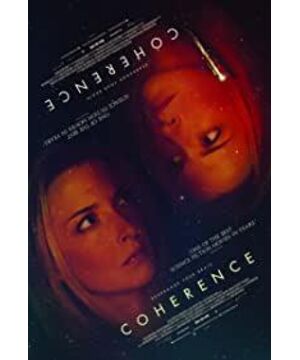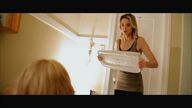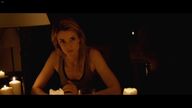The eight protagonists in the film make many choices, either intentionally or unintentionally, in the face of many events. After each choice, there is a permutation and combination (multiplication of each independent event), and the appearance of each combination will generate a space. Because multiple spaces will not be decoherent, the world is like a denser and denser network as time changes, messy and disorganized, and therefore the ending will eventually turn black, showing the darkness of human nature.
After watching it, I was naturally hooked, and I was terrified to think about the details. It's not that it's worth the three brushes, otherwise it will waste a lot of directors and screenwriters.
View more about Coherence reviews











